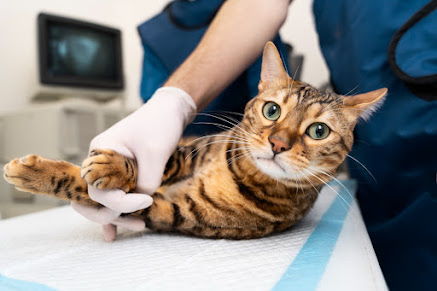The Expert Guide to Choosing Kitten Food for Optimal Health and Growth
Bringing home a new kitten is an exciting and joyous experience. As a responsible pet owner, one of the most crucial aspects of caring for your new furry friend is providing them with a balanced and nutritious diet. Just like human babies, kittens have specific dietary needs that require careful attention to ensure their healthy growth and development. In this article, we will explore the essentials of kitten food, helping you make informed decisions and giving your feline companion the best start in life.
Understanding Kitten Nutrition
Kittens, like all young animals, have unique nutritional requirements compared to adult cats. During their early months of life, they experience rapid growth and development, building the foundation for a healthy adulthood. Key nutrients needed for kittens include:
Protein: Protein is essential for the growth and repair of tissues and muscles. Kittens require higher levels of protein than adult cats, as it supports their rapid growth and development.[explore the best source of protein here]
Fats: Fats are a concentrated source of energy that kittens need for their active and playful lifestyle. Additionally, fats aid in the absorption of fat-soluble vitamins and support healthy skin and a glossy coat.
Carbohydrates: While kittens require fewer carbohydrates than dogs, they still need some in their diet for energy and overall health.
Vitamins and Minerals: Essential vitamins and minerals, such as Vitamin A, D, E, calcium, and phosphorus, are crucial for proper bone development, immune function, and overall well-being.
Water: Adequate hydration is vital for kittens, just as it is for adult cats. Fresh, clean water should always be available to keep them hydrated.
Choosing the Right Kitten Food
When it comes to feeding your new kitten, there are two main types of kitten food available: wet (canned) food and dry (kibble) food. Both have their advantages, and many owners choose to provide a mix of both to offer variety and different textures.
Wet (Canned) Kitten Food: Canned food is an excellent option for kittens as it typically has a higher moisture content. This helps keep your kitten well-hydrated, which is especially important since kittens can be prone to dehydration. Additionally, wet food tends to be more palatable, which can be helpful if your kitten is a picky eater.
Dry (Kibble) Kitten Food: Dry food is convenient and has a longer shelf life compared to canned food. It also helps promote dental health by reducing plaque buildup as kittens chew on the kibble. Look for high-quality dry kitten food that contains real meat as the primary ingredient and lacks fillers or artificial additives.
When selecting kitten food, always opt for products specifically formulated for kittens. These diets are designed to meet the unique nutritional needs of young cats and provide them with the essential nutrients for their growth.Explore here ...
Reading the Labels
Understanding how to read the labels on kitten food is crucial in making the right choice for your pet. Look for the following information:
AAFCO Statement: Ensure the product has an AAFCO (Association of American Feed Control Officials) statement on the packaging. This statement confirms that the food is complete and balanced for kittens according to the AAFCO's guidelines.
Ingredient List: Check the ingredient list to ensure that real meat, such as chicken, turkey, or fish, is listed as the main ingredient. Avoid products that contain excessive fillers, by-products, and artificial preservatives.
Nutritional Adequacy: Look for the term "formulated to meet the nutritional levels established by the AAFCO" or "complete and balanced nutrition" to ensure that the food meets the required standards.
Feeding Schedule
Establishing a regular feeding schedule is essential for your kitten's well-being. Young kittens may need to eat more frequently than adult cats, as their stomachs are smaller, and they require more energy for growth.
For kittens up to three months old, offer food four times a day. Between three to six months, you can reduce this to three meals a day. After six months, you can transition to two meals a day, which is typical for adult cats.
Avoiding Human Food
It's essential to resist the temptation to feed your kitten from your plate. Human food is not suitable for cats and can lead to nutritional imbalances or even toxicity. Certain human foods, such as chocolate, onions, garlic, and grapes, are toxic to cats and should be kept far away from their reach.
Monitoring Your Kitten's Progress
As your kitten grows, monitor their weight, energy levels, coat condition, and overall health. If you notice any abnormalities or concerns, consult with a veterinarian promptly. Regular vet check-ups are essential to ensure your kitten is on the right track and to address any health issues early on.
Conclusion
Providing your new kitten with the right nutrition is an essential step in raising a healthy and happy feline companion. High-quality kitten food, designed to meet their specific needs, along with a regular feeding schedule, will give your pet the best start in life. Remember to offer plenty of fresh water, and be attentive to any changes in your kitten's health or behavior. With love, care, and the right nutrition, you'll be on the path to creating a strong bond and a long-lasting relationship with your adorable furry friend.
explore : Kittens (Complete Pet Owner's Manuals)






